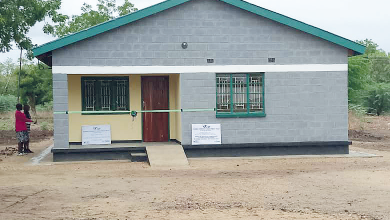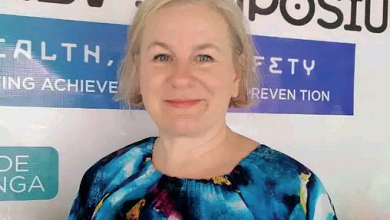Expert highlights gaps in public finance
Revered prosecutor Kamudoni Nyasulu has highlighted gaps in the implementation of public finance management reforms and proposed time-bound outcomes to reap from programmes such as Extended Credit Facility (ECF) from International Monetary Fund (IMF).
In an analysis covering 2013 to 2025, the lawyer and certified fraud examiner, who is also a consultant on governance reforms, observed that the Malawi Government made repeated commitments to strengthen law enforcement and prosecutorial institutions, particularly in response to corruption scandals and governance failures, but with minimal action.
Nyasulu, a Senior Counsel (SC), observed that following the revelations of Cashgate— the plunder of public funds at Capital Hill through inflated invoices and payment for goods and services not delivered—an IMF Country Report No. 14/37 documented Malawi’s commitment to prosecuting perpetrators, conducting forensic audits and strengthening Ifmis controls.
He said: “While arrests and prosecutions occurred, many cases were delayed or lacked transparency. Despite some high-profile prosecutions, asset recovery remained fragmented and ineffective.
“The forensic audit, though completed, was not fully leveraged to secure convictions. Public sector reforms were initiated, but progressed slowly, undermining donor confidence and leading to aid suspensions.”
Nyasulu further noted that during the same period, Capital Hill, in its reports to the IMF, consistently pledged to strengthen internal and external audit systems, enhance Integrated Financial Management and Information System (Ifmis) oversight and implement forensic audits.
However, he said while the commitment rhetoric remained strong, the repetition of similar pledges year after year signalled institutional inertia and reform fatigue, which undermines credibility and donor confidence.
Said Nyasulu: “Routine audits repeatedly failed to detect systemic fraud. Internal audit units lacked independence and resources; external audits were delayed and poorly enforced. These gaps created a permissive environment for financial abuse, including the later Covid-19 funds mismanagement.
“Forensic audits were commissioned post – Cashgate and occasionally post-disbursement, but never institutionalised. Reports show l imi ted capaci ty, delayed investigations, and
weak prosecutorial follow-through.”
He called for embedding prosecutorial independence within legal frameworks, enhancing inter-agency coordination, and leveraging donor conditionality, saying these are critical steps toward building a resilient and transparent justice system.
In a separate interview, Mzuzu University-based economist Christopher Mbukwa said in a written response yesterday that recurrence of promises without actions puts Malawi in a bad light.
He said: “It signals weak political will and an ill-equipped public administration to deliver on Malawi’s political commitments in the area of strengthening public finance management.”
Mini ster of Finance, Economic Planning and Development , Jo s eph Mwanamvekha did not respond to our questions yesterday.
However, on October 18 2025, on the sidelines of the IMF and World Bank Group Annual Meetings in Washington, the minister met IMF Africa Department director Abebe Selassie with focus on Malawi’s macroeconomic priorities, including debt sustainability, inf lation management , economic growth and fiscal deficit reduction.
During the meeting , Mwanamvekha is quoted as having assured the IMF delegation of Malawi’s strong political will and reaffirmed that President Peter Mutharika, who triumphed in the September 16 2025 General Election, has already started fiscal measures to strengthen economic stability.
Nyasulu’s analysis comes after the IMF in May this year terminated its four-year $175 million (about K306 billion) ECF, secured in November 2023 and by the time of suspension, only $35 million had been disbursed.
Malawi sought the new ECF after cancelling the previous arrangement in September 2020 barely two months after the Tonse Alliance administration led by former President Lazarus Chakwera ascended to power





